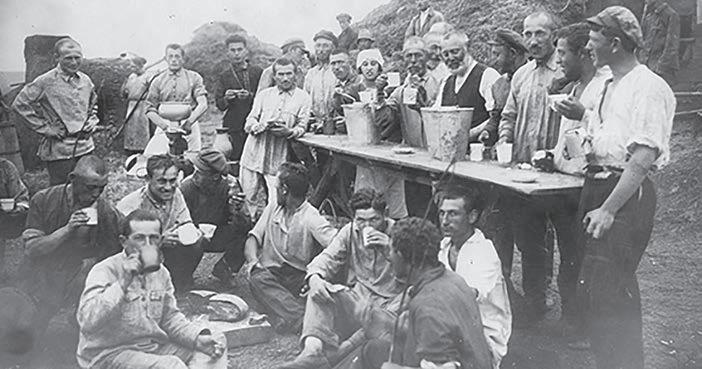
12 minute read
HADASSAH
Or Atid Religious School news
By Alison Litvin Education Coordinator
Amonth into distance learning, Kornblau Religious School sta have reimagined, adjusted, and updated the virtual classroom to personalize the experience for all learners.
Live classes provide creative opportunities for students to freely express themselves, encouraging collaboration among students via Zoom’s interactive features. These features allowed students to come together to celebrate recent holidays, fostering community through the screen.
The Zoom client o ers a remote control feature, allowing teachers to temporarily grant students access to the mouse during an ongoing screen-share. By gamifying elements of their virtual sessions and highlighting student agency, sta have created a variety of online games to coincide with each week’s lesson.
Inspired by the point-and-click and drag-and-drop styles, students have played Alef-Bet iSpy, dressed the Torah, and decorated a sukkah virtually to interact with their Judaism in new, and uniquely Or Atid, ways.
As they prepare for their upcoming B’nei Mitzvahs, Morah Tal’s class o ers new opportunities to explore the meaning and themes of individual prayers. Students talk through the service together, carefully examining the words behind each blessing to understand the message behind each prayer.
As they progress through the service, students recognize how the order of the service resembles the fl ow of a car wash, the rooms in a fun-house, and even the Shuk HaCarmel in Israel.
Emphasizing the way each prayer fi ts together to form services, Morah Tal guides students towards personally connecting to the prayers as they gain a deeper understanding of the service structure.
This year’s classroom may be virtual, but that doesn’t limit sta or students from discovering new ways to engage with Jewish holidays and traditions, Israeli culture, Hebrew and Tefi llah, and the weekly parsha.
For more information about the school, and to learn about our approach to distance learning, please contact Education Coordinator Alison Litvin, at relschool@oratid.org, or call Congregation Or Atid at (804) 740 - 4747.
Or Atid students enjoyed using the click and drag feature during remote instruction to decorate virtual Sukkahs.
.Hadassah Happenings
Students at the Helen and Sam Kornblau Religious School of Or Atid had fun fi nding the hidden
Hebrew letters. Or Atid Photos
8 Nights: Hadassah No Show Hanukkah Party
Please do NOT show up at Hadassah Richmond’s Hanukkah Party!
Don’t RSVP, don’t buy a new dress, don’t get a babysitter, just click on our emails during Hanukkah! Be on the lookout for candle lighting opportunities with Hadassah. Join with your friends and family each night of the holiday at our No Show Hanukkah Party. Members of Hadassah Richmond will light the Menorah, recite the blessings, celebrate and remember the miracle of the Maccabees defeating the Assyrians and reclaiming the Temple.
As our Hadassah families kindle their Menorahs, join us virtually to light your own. At that time, we will be are asking for your support to raise funds for the important work of Hadassah here and in Israel.
Our support today can be part of our modern-day miracle fi nding cures for so many diseases plaguing our world. Hadassah research and development cannot stop even when we cannot join together in traditional fundraising events in person.
Hadassah is actively doing research on Covid-19, stem cells, osteoarthritis pain, cardiac diseases, neurological diseases which includes Parkinson’s, Alzheimer’s and cancer.
These are just a few of the many, medical breakthroughs happening at Hadassah Medical Center in Israel.
Stay tuned for more details on how you can participate!
HADASSAH RICHMOND-
A COMMUNITY
OF WOMEN
WHO
DO!
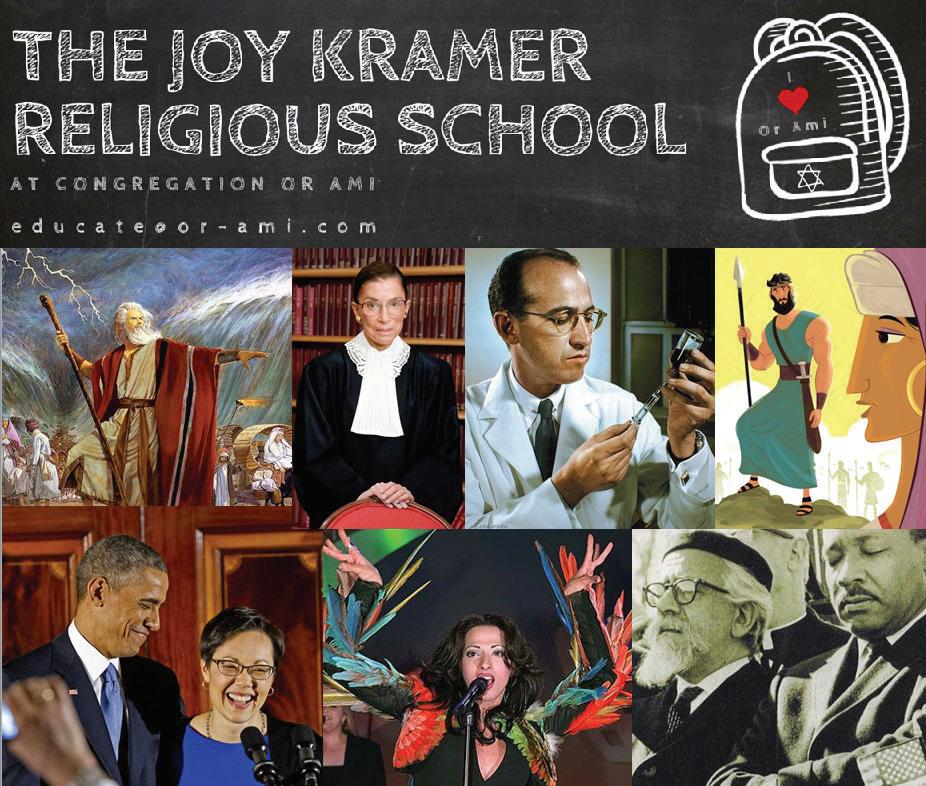

Some of the Jewish heroes Or Ami students will study this year. Or Ami happenings
October was a busy month for our Or Ami kids.
On Sunday, Oct. 11, we had a wonderful Opening Day of Religious School with learning and fun for children and parents. There is still time to enroll your children, grandchildren, nieces or nephews between the ages of 2 and 14.
Our Religious School is wonderful way to connect to other Jewish children and learn about this year’s topic of Jewish heroes from biblical times to the present day, including scientists, athletes, activists, and trailblazers of diverse Jewish backgrounds. To register, visit https://or-ami.com/registration/.
We had a blast celebrating the fall holiday of Sukkot with everyone in their personal sukkah or customizable virtual sukkah. Children and adults enjoyed the Sukkot scavenger hunt, finding items in their home that evoked holiday themes such as welcoming guests, beautifying our homes, and remembering the journey of our ancestors. At the end of Sukkot, we celebrated Simchat Torah with a Zoom dance party to energetic music, including a techno remix of Havah Nagilah. Community mem-

bers waved handmade flags and danced with mini Torah scrolls after taking a virtual tour of the Torah with Rabbi Ahuva.
Our regular busy social schedule is curtailed due to the virus, but our virtual Book Club still meets. You can join in on the fun on Nov. 2 with “Lost Girls of Paris” by Pam Jenoff. December’s selection is very different - poetry by Marge Piercy, “The Art of Blessing the Day: Poems with a Jewish Theme, and January will probably feature science fiction (we are really branching out).
Please contact: office@Or-Ami.com for links to these events.
Virtual Shabbot Services are held on-line Friday evenings from 7:30 to 8:30, and Torah Study is held on Saturdays, from 11 a.m. until 12:30 p.m. in Zoom format.
For more information on any of our programs, or to obtain links to Zoom events, please contact our office at (804) 272-0017 or office@or-ami.com.


Having fun at Or Ami’s virtual Sukkot
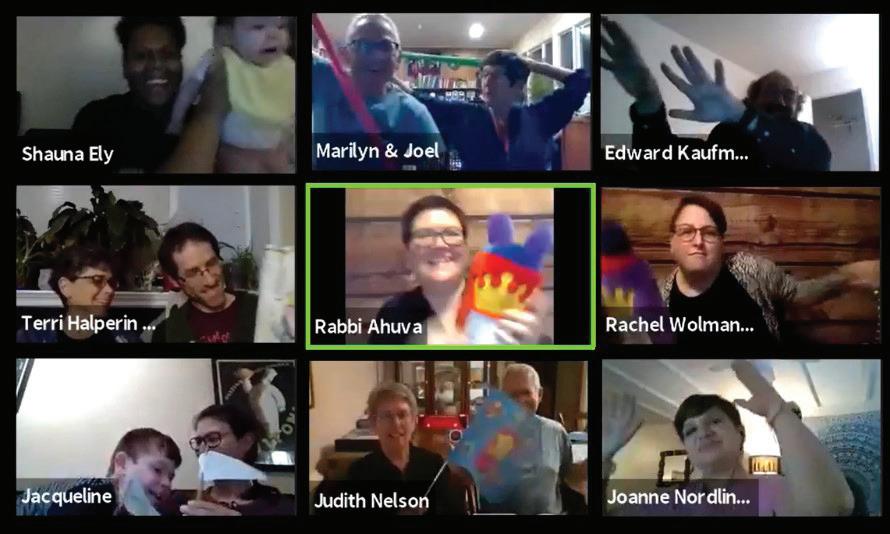
Want to know more? Contact us at Belong@Or-Ami.com or check us out at www.Or-Ami.com. You can follow us at facebook.com/OrAmi-Richmond, or catch us on Twitter@oramirichmond.
All inquiries welcome.
As the High Holy Days in this year of COVID-19 drew to an end, Congregation Beth Ahabah virtually celebrated Simchat Torah.
With the joyous accompaniment of the music of the Klezmer band, My Son the Doctor, Rabbi Scott Nagel, Cantor Sarah Beck-Berman and Music Director Natan Berenshtyen circled the sanctuary seven times with Torahs as congregants danced in their living rooms.
Afterward, like every New Year, the Sukkah was taken down, the Torahs exchanged their white mantles for blue and, like the cycle of the Torah reading, the congregational year began again anew ... with changes to keep the congregation safe and connected.
Religious school opened the “doors” of its Google Classrooms on Oct. 4. All but one of the teaching sta returned to take on the challenge of virtual teaching. Both students and teachers were delighted to see each other.
With the summer to prepare for all potential eventualities, the sta designed and wrote a whole school curriculum that was printed in a Religious School Reference and Resource Guide.
Each week the curriculum included the Torah portion, a Middah (Jewish Value), a topic on Israel and Prayer/Hebrew study. All students learned the same material in a grade appropriate way.
The guide and other materials, including a honey cake baked by the Women of Beth
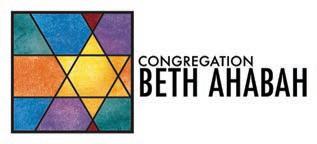
Ahabah, was picked up by families at a drive by Materials Pick-up Party on September 26th.
Adult and Teen Education began on Oct. 19th, with classes including Jewish Mysticism, Jewish Cooking with Chef Dan Scherotter, Tehillim/Psalms: Reclaiming the Ancient Top 40, and Holocaust through Many Lenses.
Torah resumed with more than 40 people Zooming in weekly to learn with Rabbi Nagel. Tot Shabbats and Talmud Lunch and Learn continued monthly virtually as well.
It wasn’t all education, there were some fun in-person socially distanced activities. The top floor of the parking deck was transformed into an outdoor cinema for screening of two Sukkot themed films: “The Lorax” and “Ushpizin.” The deck and the courtyard hosted a few youth group events as well.
Shabbat Services will continue to be lived- streamed weekly on Fridays at 6:15 p.m. to our YouTube channel. To view, visit Congregation Beth Ahabah, Richmond VA. Everyone is welcome to attend.
For more information on Beth Ahabah, call (804) 358-6757 or visit www.bethahabah.org
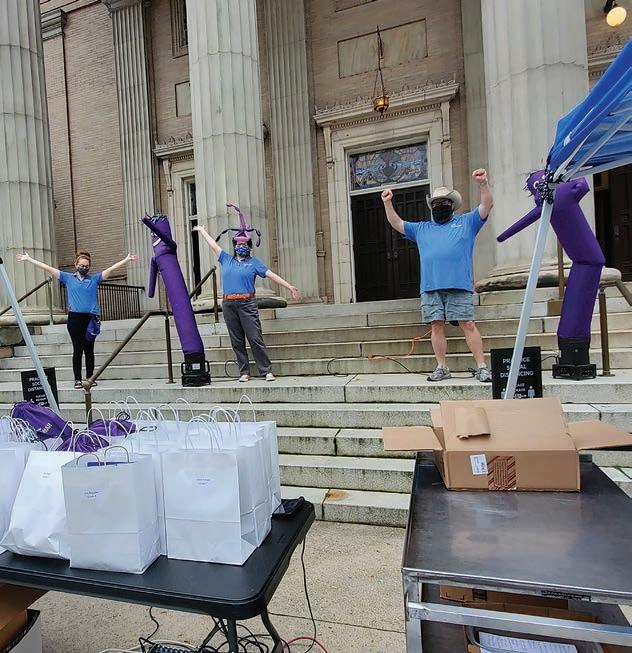
Beth Ahabah families are greeted during a drive by Materials Pick-up Party on Sept.
26. Beth Ahabah Photos

The Beth Ahabah Religious School Sta designed and wrote a whole school curriculum that was printed in a Religious School Reference and Resource Guide.
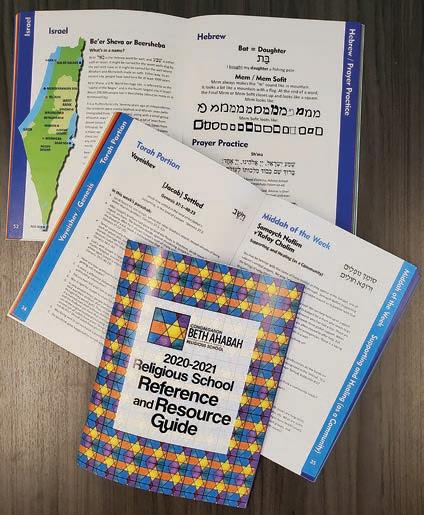
The top floor of the parking deck at Beth Ahabah was transformed into an outdoor cinema for screening of two Sukkot-themed films: “The Lorax” and “Ushpizin.”
.Israel & Overseas Happenings
Ignoring Jewish poverty is a sin we can’t a ord
Editor’s Note, The following article was published on Sept. 24 on “Scribe,” the curated contributor network of the “Forward.” The online publication showcases personal experiences and perspective from across our Jewish communities.
By Asher Ostrin and Mark Sisisky American Jewish Joint Distribution Committee
On Yom Kippur, the global Jewish community will look back on tremendous losses. Among them are loved ones, the comforts of individual and community connections, shared simchas and holidays, and a way of life driven by all of the above. But there is another loss that jeopardizes those closest to us and our collective future: growing economic insecurity among Jews and Jewish communities as a result of the economic toll of COVID-19.
We already sense it in the number of beloved Jewish causes and institutions that have folded or made painful cuts to survive an uncertain philanthropic future. These were early warnings to prepare for the further decline of our communities’ financial prospects and the need to sustain Jews who’ve become “the new poor” as the pandemic unfolds.
Data backs these concerns: Economic challenges, including unemployment, in the U.S. and Israel, are matched by worrying global financial trends. The IMF is predicting the global economy would shrink by nearly 5%; global employment losses in the second quarter of 2020 could be equivalent to the disappearance of tens of millions of full time jobs.
In recent months, they’ve also forecasted an 8% economic contraction in Spain, 10% in Greece, and in Argentina, already beset by economic troubles, there is rising unemployment and increasing inflation.
Jews in these places, especially those who have become middle-class recently, are hard hit. Unemployment funds or other relief programs will not fully cover freelancers, independent contractors, and merchants, a critical mass of the workforce. Additionally, tourism and rental income that some Jewish communities and individuals rely on for their livelihoods and to support the poor and elderly has declined. The result has been the emergence of people who have never needed assistance before and are turning to their Jewish communities for support.
As leaders of the American Jewish Joint Distribution Committee, an organization that has helped Jewish communities and Israel weather numerous crises, we have learned valuable lessons about how to address this crisis. Four steps need to be taken:
First, we must acknowledge financial strife, however di cult. Many Jews have achieved widespread success in business and philanthropy. This sometimes makes poverty a condition they find hard to imagine. And yet it has always been a feature of our communities and we’ve created agencies like Jewish Family Services to meet needs.
To get beyond the discomfort rising from this tension, we need to recognize it loudly and address it head on, especially when growing numbers are experiencing it. We should also engage in e orts that strengthen the voices of those newly in need and get better at tracking real-time changes in their economic status. Second, we must reinforce the centrality of the Jewish community in solving this challenge.
It’s no surprise that people turn to the Jewish community when facing economic need. They come to us in the best of times and believe they can do so when life is hardest. They assume our collective values – mainly arevut (mutual responsibility among Jews) and tikkun olam (repair of a broken world) – will ensure Jewish communities provide aid with dignity and respect.
So we need to strengthen community outreach and remind folks we’re here for them.
Playing this role leads to surprising results and new relevance: deepening
JDC was founded during World War I, when, in 1914, U.S. Ambassador to Turkey Henry Morgenthau, Sr. wired New York philanthropist Jacob Schi to ask for funds to help Jews su ering in Ottoman Palestine. We were the first Jewish organization in the United States to give
large-scale funding for international relief. JDC photo and growing engagement with the community, even among the una liated; new or increased donations and matching efforts from Jewish philanthropists eager to aid fellow Jews; and impactful solutions leveraging existing social services.
Third, we need to partner for success. In an era of shrinking budgets and an urgent need to share resources, knowledge, and expertise, we need to build coalitions to help those in need.
Responding to the current situation, we’ve been leading a consortium of mostly-European philanthropic leaders and foundation partners – including the Ronald S. Lauder Foundation, the Maurice and Vivienne Wohl Philanthropic Foundation, Maimonides Fund, and the Genesis Philanthropy Group — and Jewish communities worldwide in providing emergency assistance for food, medicine, rent, and supplementary income.
We’re helping close to 1,600 Jewish households, impacting an estimated 6,000 people in 11 countries in Europe, including Bulgaria, Estonia, Hungary, Italy, Greece, and Bosnia, as well as Jews in Morocco, Tunisia, and Argentina.
Finally, we must leverage this partnership model to address other challenges, including the financial viability of our communal infrastructures. This paradigm is especially critical as post-COVID Jewish life will require transformations in how organizations and communities operate, gather people for prayer and programming, and continue to meet social service, cultural, educational, and identity-building needs.
There have been promising developments in this area around day schools and summer camps, both in Europe and America, and we should leverage learnings from them for other institutions that anchor Jewsh life and identity.
Jews around the world today are relying on their communities to ensure that 5781, and the years that follow, are hopeful and filled with opportunity. Stronger community economic preparedness, building of collective resilience capacities for future crises, and forging stronger connections between Jews and their local communities is the formula for achieving that.
For the sin we might commit in being too slow to address the poverty around us, there is much we can do to make amends. Mark Sisisky, a longtime Richmond and International leader, is president of JDC and Asher Ostrin is innterim CEO of JDC, the American Jewish Joint Distribution Committee.
